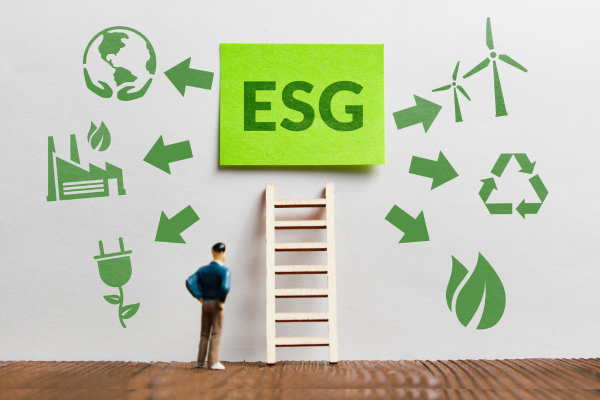October 11, 2023 | Risk Mitigation
Demystifying ESG and its Influence on Catastrophe Insurance
What is ESG?
ESG, an acronym that’s been making headlines, stands for Environmental, Social, and Governance. Rather than focusing on a company’s values, ESG sheds light on how a company positions itself to face future challenges and risks.
Let's break down what it conveys:
1. Environmental (E): This delves into how a company navigates emerging risks. From the tangible effects of climate change—like physical damages—to transition risks, reputational hazards, and market dynamics. It uncovers a firm’s responsiveness to issues like environmental pollution or resource constraints.
2. Social (S): It’s all about relationships. How does the company interact with its employees, suppliers, customers, and the communities it is a part of? Key considerations include human rights, employee health and safety, diversity, and broader stakeholder engagement.
3. Governance (G): Think of this as the ‘operating system’ of a company. It elucidates how the company functions daily and its transparency regarding those functions. From addressing bribery and corruption to executive pay scales, conflicts of interest, and even the diversity and structure of the board, it’s about keeping operations transparent and accountable.

Why care about ESG?
Now, why should someone, be it a commercial property owner or a broker/agent, care about ESG, especially when it comes to catastrophe insurance? Simply put, understanding ESG risks offers a clearer picture of vulnerabilities. A company aware of its ESG profile can better prepare for unforeseen challenges, from climate-related damages to shifts in market dynamics. For brokers and agents, this knowledge enables offering precise advice on insurance coverage, ensuring their clients are neither over-protected nor underinsured.
ICAT + ESG
ICAT is committed to understanding our own ESG profile and being a leader in how we address needed change. We offer a combination of specialized underwriting expertise and best-in-class claims handling to help homeowners and businesses protect themselves from the devastating impacts of hurricanes and earthquakes. We utilize a proprietary risk modelling methodology to gain greater insight into changes in storm activity, which is then used to estimate potential losses and define ICAT’s underwriting appetite for each storm season. And most recently, we began offering a “green upgrades” endorsement for our commercial property clients, which includes expanded coverage to support the use of sustainable methods and materials when rebuilding damaged property after a hurricane or earthquake.
ESG Now and in the Future
Recently, ESG has faced its share of media skepticism. Yet, despite the terminology’s fluctuating popularity, the core concept remains paramount. Insurers recognize the invaluable insights ESG offers into how businesses confront emerging risks. The term might evolve, perhaps to sidestep political undertones, but the underlying risk analysis—as a pivotal tool in understanding economic disruptions—will endure. As our world continues to change, it’s not just about knowing a company’s worth today, but understanding its readiness for tomorrow.
